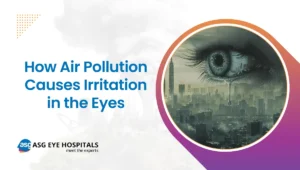Our eyes are vital organs that play a crucial role in our daily lives. However, like any other part of the body, they are susceptible to infections that can cause discomfort and, if left untreated, potentially lead to more serious complications. In this blog, we will explore common eye infections, their symptoms, and how to seek appropriate treatment.
Common Eye Infections
Conjunctivitis (Pink Eye)
One of the most prevalent eye infections is conjunctivitis, commonly known as pink eye. This infection occurs when the conjunctiva, the thin layer covering the eye’s white part, becomes inflamed. Viruses, bacteria, or allergens are often the culprits behind conjunctivitis.
Symptoms
- Redness in the whites of the eyes
- Itching or burning sensation
- Excessive tearing
- Discharge, which may be clear, white, yellow, or greenish
- Swollen eyelids
Treatment
- Viral conjunctivitis often resolves on its own, but antiviral medications may be prescribed in severe cases.
- Bacterial conjunctivitis may require antibiotic eye drops or ointments.
- Allergic conjunctivitis can be managed with antihistamines or anti-inflammatory eye drops.
Stye (Hordeolum):
A stye is a painful red lump that develops at the base of an eyelash or inside the eyelid. It occurs when bacteria enter and infect the oil glands in the eyelids.
Symptoms
- Swelling and redness
- Pain and tenderness
- Pus-filled bump on the eyelid
Treatment
- Applying warm compresses several times a day can help the stye drain and heal.
- Avoid squeezing or popping the stye, as this can worsen the infection.
- In severe cases, a doctor may prescribe antibiotics.
Blepharitis
Blepharitis is the inflammation of the eyelids, usually affecting the eyelash follicles and oil glands along the eyelid margins.
Symptoms
- Red and swollen eyelids
- Itchy or burning sensation
- Crusty or greasy eyelids
- Excessive tearing
Treatment
- Warm compresses and gentle eyelid hygiene can help manage symptoms.
- Antibiotic ointments or drops may be prescribed for bacterial blepharitis.
- In chronic cases, a doctor may recommend ongoing eyelid hygiene and medication.
How to Identify Symptoms of an eye infection
Recognizing the symptoms of an eye infection is crucial for prompt intervention and effective treatment. If you experience any of the following symptoms, it is advisable to consult with an eye care professional:
- Redness: Persistent redness in the whites of the eyes may indicate inflammation or infection.
- Discharge: Unusual discharge, whether clear, white, yellow, or green, suggests an underlying issue that requires attention.
- Itching or Burning Sensation: Irritation, itching, or a burning sensation can be signs of various eye infections, especially conjunctivitis or allergic reactions.
- Swelling: Swollen eyelids or the development of lumps may point to infections like styes or blepharitis.
- Tearing: Excessive tearing or watery eyes can be a response to irritation caused by infection.
How to seek Treatment
If you suspect an eye infection, it is essential to seek professional medical advice for an accurate diagnosis and appropriate treatment. Here are steps to take:
- Consult an Eye Care Professional: Schedule an appointment with an optometrist or ophthalmologist for a comprehensive eye examination at ASG eye hospital.
- Avoid Self-Diagnosis and Treatment: Avoid self-diagnosing or using over-the-counter medications without professional guidance, as this can exacerbate the problem.
- Follow Prescribed Medications:– If prescribed medication, such as antibiotics or eye drops, follow the recommended dosage and complete the full course, even if symptoms improve.
- Practice Good Hygiene:– Maintain proper eye hygiene by washing your hands before touching your eyes and avoiding the use of expired eye makeup or contact lenses.
- Use Warm Compresses:– Applying warm compresses can help alleviate symptoms such as swelling and discomfort.
Conclusion
Taking care of your eyes is crucial for overall well-being. By understanding the common symptoms of eye infections and seeking prompt treatment, you can protect your vision and prevent complications. Remember, early intervention is key to a swift recovery, so prioritize your eye health and consult with a healthcare professional if you suspect any issues.



